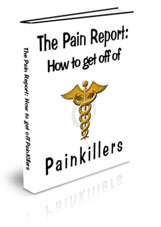How Long Does Opiate Withdrawal Last?
How long will the withdrawal from painkillers last? Whether it’s withdrawal from Oxycontin, Vicodin, Percodan, Codiene or any other painkiller or heroin, that’s kind of a loaded question.
The main physical withdrawal effects, such as the pain, sweats, chills, vomiting, diarrhea and nausea usually last only about 5 days to a week. The other part, the longer term withdrawal or PAWS (post acute withdrawal syndrome) can last from several weeks to several years.
This part is sometimes what keeps people going back to the drug. After the initial withdrawal or detox, then you have residual detox and the brain trying to function normally, but it just can’t. At least not yet, and it can take months or years for a persons brain chemistry to get back to normal.
It is this period of time that can be the most difficultfor many to STAY OFF of the drugs, because it is here where the nagging and gnawing little voices start talking. I am not talking hallucinations, but I am talking depression and anxiety and the want to just be happy again.
What happens when a person is addicted to pain killers is their brain stops making endorphins, the bodys natural pain killers and the thing that keeps us from getting depressed. When a person starts taking pain meds for an extended length of time, their brain stops making endorphins because opiates look just like endorphins to the brain and the brain stops making them.
After so long the brain stops making them and the pain killer is now depended upon for endorphins or the imitation endorphins. Clinically the opiate dependance is spelled out like this:
“Opiate addiction is recognized as a central nervous system disorder caused by continuous opiate use. Extended opiate abuse leads to the nerve cells in the brain to stop functioning as they normally would and stop producing natural endorphins. Because the body is receiving opiates and is no longer producing endorphins, the nerve cells start to degenerate and cause an opiate addiction.”
So what happens is the brain doesn’t make endorphins anymore, the person who was addicted may be depressed and have anxiety for a period of time after getting off the painkillers and after the physical withdrawal is over.
It is during this period of time the person occupy themselves with something constructive. The person will most likely not want to do anything much, but once they start they start to feel better. It forces the brain to start making it’s own endorphins. Physical exercise can help to jump start the endorphin making process.
It is also of great importance for the person to get SUPPORT in the form of either a 12 step program(Highly Recommended), or through some form of group counseling. There is power in numbers and being a part of a group really helps immensely.
Many people feel they don’t belong in a group with other drug addicts, but the fact is, they do, they were once addicted or are currently addicted to drugs. They may feel they are not like the other people., but they are, in that they were addicted.
I also want to make one thing VERY clear, Just because you or someone you love is addicted to painkillers, doesn’t mean they have a moral problem. Opiate addiction is NOT a moral issue, it’s a medical one, and one not to be trifled with. Give them a break and support them emotionally, and get them the help they need.
I’d also Suggest reading this post: Opiate Withdrawal Timeline













